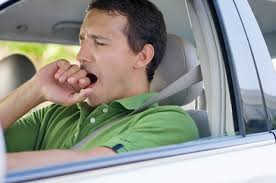记忆方法
1. PIE root *dhreu- "fall, drip, droop" => Old English dreosan (past participle droren) "fall" => Middle English dresen "fall".
2. PIE root *dhreu- "fall, drip, droop" => Proto-Germanic *drup- "fall, drop".
3. 由此推出同源词:drown; dreary; drizzle, drowsy; drip, drop, droop.
4. 谐音“桌睡、装睡、抓睡”----趴在桌子上睡觉。
2. PIE root *dhreu- "fall, drip, droop" => Proto-Germanic *drup- "fall, drop".
3. 由此推出同源词:drown; dreary; drizzle, drowsy; drip, drop, droop.
4. 谐音“桌睡、装睡、抓睡”----趴在桌子上睡觉。
中文词源
drowsy 打盹
来自PIE*dhreu, 滴,掉落,词源同drop, dreary. 引申义耷拉着头,打盹。
英语词源
- drowsy
-
drowsy: [15] The etymological notion underlying drowsy seems to be of heaviness, with eyelids falling and the head nodding over the chest. The word probably comes from a Germanic base *drūs-, which also produced drūsian, an Old English verb meaning ‘be slow and sleepy’ which did not survive into the Middle English period (modern English drowse [16] is a back-formation from drowsy). A variant of this base is the possible source of English dreary and drizzle.
=> dream, drizzle - drowsy (adj.)
- 1520s, probably ultimately from Old English drusan, drusian "sink," also "become languid, slow, or inactive" (related to dreosan "to fall"), from Proto-Germanic *drus- (see dreary). But there is no record of it in Middle English. Related: Drowsily; drowsiness.
权威例句
- 1. He had been feeling drowsy, the effect of an unusually heavy meal.
- 他一直感到昏昏沉沉的,这是吃了一顿超级大餐的结果。
- 2. I felt dopey and drowsy after the operation.
- 手术后我感到迷迷糊糊,昏昏欲睡。
- 3. The tablets may make you feel drowsy.
- 这药片可能会使你昏昏欲睡。
- 4. Exhaust fumes made him drowsy and brought on a headache.
- 废气把他熏得昏昏沉沉,还引起了头疼.
- 5. It was a warm, quiet, drowsy afternoon.
- 那是一个暖和 、 寂静而令人昏昏欲睡的下午.
